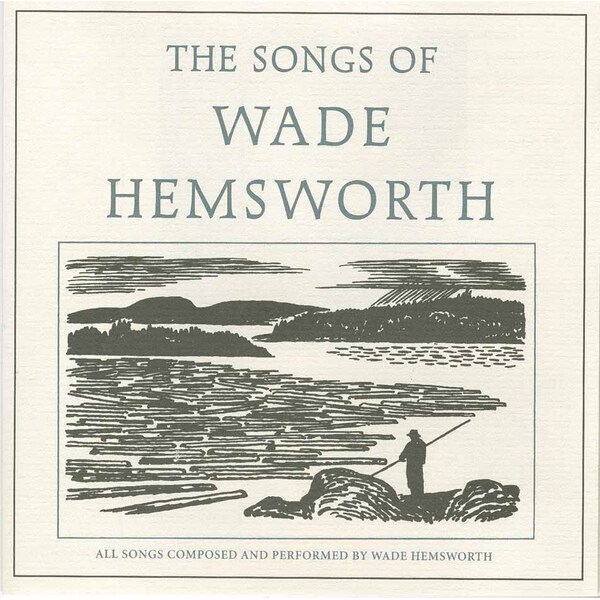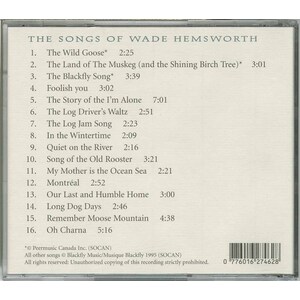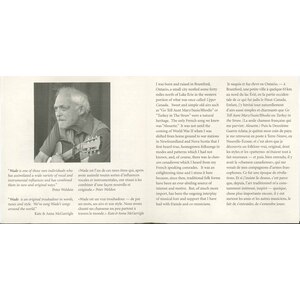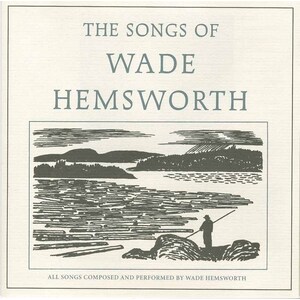Information/Write-up
The Songs of Wade Hemsworth
He wrote fewer than 20 songs in a career that spanned 50 years, but some of those songs are considered to be true classics of Canadian folk music. When Wade Hemsworth died in 2002, Governor General Adrienne Clarkson said that his songs were "so much a part of our folklore and so familiar that we didn't realize anyone had written them." For the most part he worked and lived under the radar and out of the spotlight, but it seems that he was discovered and rediscovered by CBC Radio several times over. 2016 year would have been Wade Hemsworth's 100th birthday, so in his honour Rewind presents some of those radio interviews and musical performances.
The song Wade Hemsworth is perhaps best known for is The Blackfly Song, with this familiar chorus:
Black flies, the little black flies
Always the black fly, no matter where you go
I'll die with the black fly a-picking my bones
In north On-tar-i-o-i-o, in north On-tar-i-o
Wade Hemsworth's music has been compared to the paintings of the Group of Seven: he wrote about what he saw up close and first-hand. Born in Brantford, Ontario, he trained and worked as a topographical draftsman for the CNR and on the survey gangs for Ontario Hydro. Both of these jobs took him deep into the woods of Northern Ontario, Quebec and Labrador where he found inspiration for songs like The Wild Goose, The Log Driver's Waltz, Land of the Muskeg, and yes, The Black Fly Song. After he joined the RCAF, he was based in Newfoundland. Of his time in that province, Wade said "it was there that I came across genuine Canadian folk songs. And I was fascinated."
He was also influenced by jazz, West Indian, and French Canadian music. He admitted that his training was completely informal, crediting much of it to the fact that he simply read a lot of books and spent time talking with people. He spoke about his musical beginnings with the CBC's Michael Cass- Beggs in 1971.
Folk sisters Anna (left) and Kate McGarrigle pose at their apartment in Montreal, 1991 (The Canadian Press)
Two of his greatest advocates and supporters were the McGarrigle sisters, Kate and Anna. Later in his career, they performed several of Wade's songs to great acclaim. In 1977, CBC Radio's Harry Brown invited Kate and Anna McGarrigle into the studio to play some of them. They brought their band with them, which included Peter Wheldon, Chaim Tannenbaum, Dane Lanken and Pat Donaldson, to perform the songs Land of the Muskeg and The Shining Birch Tree.
Peter Gzowski was the next CBC host to invite Wade into the studio. Wade joined Peter on Morningside in 1991, along with his old friends Kate and Anna McGarrigle. On this occasion, they talked about Wade's meticulous writing style and the songs he wrote for the National Film Board.
Just before his 80th birthday in 1996 , Wade visited the CBC radio studios once again when he spoke with David Grierson on the program Gabereau. This interview was done when, after many years, Wade released a collection of almost all original songs. When Grierson asked Wade about his songwriting process, Wade replied " I do not dash a song off. I have an idea. I play about with chords, melody, with words..it's more difficult with the words. Then I hold it. And do it over again. I hold it for a couple of months 'til it's fit to be performed."
Wade Hemsworth might not be a household name, but his songs of blackflies and geese, log drivers and birch trees are a lyrical a representation of true Canadiana. 2016 woild have been his 100th birthday.
Watch The Log Driver's Waltz , a visual depiction of another of Wade's best known songs. It's easily one of the most often-requested films in the The National Film Board collection: https://www.nfb.ca/film/log_drivers_waltz/
Wade Hemsworth also performed his song The Wild Goose on Murray McLauchlan's CBC Radio show Swinging on a Star.
CBC, September 2, 2016




No Comments